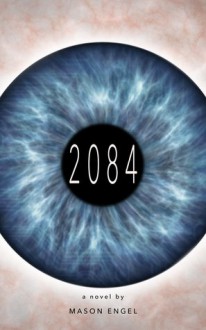With “1984”, Orwell told the perfect story of an oppressive dystopia. What he didn’t do, however, was tell us how this dystopia came about in the first place. “2084” is a foreboding tale not only of the world at its lowest point, but of its decline.The world wears “Lenses”, computerized contacts...
show more
With “1984”, Orwell told the perfect story of an oppressive dystopia. What he didn’t do, however, was tell us how this dystopia came about in the first place. “2084” is a foreboding tale not only of the world at its lowest point, but of its decline.The world wears “Lenses”, computerized contacts produced by a corporation called Newsight, and is enamored with them. But a teenage boy named Vincent has reservations. His father, a Senator, tells him that Newsight has been pushing for a bill that would lift all data regulations imposed on their devices. Newsight’s CEO claims to want the data in order to stop the Order, a terrorist organization whose attacks have been mounting in frequency, but his true motives aren’t so clear. From a girl at his school whose father is a Newsight developer, Vincent learns about the bread crumbs in Newsight’s computer code. The corporation has a closer relationship to the Order than anyone may have guessed, and the Lenses have been doing more than just running simulations. Caught in the middle of a world blinded by its own desire for progress, Vincent and Jessica finally discover the truth, but it might already be too late. Eerily similar to the issues soon to be faced in the approaching Trump-era of business-government collaboration, the privacy breaches in “2084” shed an ominous light on the future of our technocentric world. Where Orwell’s predictions in “1984” once seemed farfetched, they now seem all too likely. “2084” brings this realization back to the forefront.
show less

